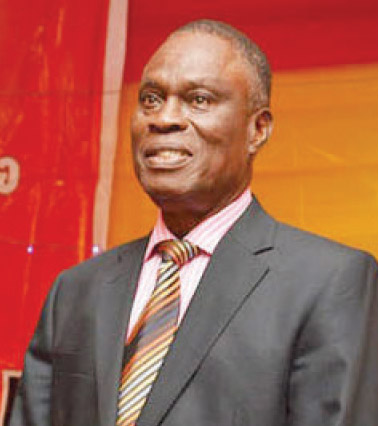Professor of law and former Commissioner, Nigerian Law Reform Commission, Egerton Uvieghara, celebrated his 80th birthday recently. In this interview with Senior Correspondent, ONYEWUCHI OJINNAKA, he speaks, among other issues, on life after retirement and the constitutionality of National Judicial Council (NJC).
You taught law in the university for a long period before retirement. Since you retired, have you ever felt like going back to the classroom?
I started teaching in 1966. I introduced two new subjects into the syllabus, Labour Law and Commercial Transactions. I also wrote two books, one on each subject. I became professor in 1979. The only job I have done in my life is teaching. In 1993, I was appointed Commissioner for Law Reform in the Nigerian Law Reform Commission. There are usually four commissioners. Justice P. K. Nwokedi, formerly of the Supreme Court, was the Chairman; Dan Agada (of blessed memory) and Nwachukwu from Abia State. The University of Lagos allows you a leave of absence for four years and my initial appointment was for five years. Just before my appointment, I was in the Council of the University representing the Senate, so I wrote for an extension of one year, 1993 to 1998.
In 1998, I retired from the university officially, although I had not been there since 1993. I retired so that vacancy will be created and new people will be appointed. Another five years from 1998 took me to 2003. After 10 years, you are not re-appointed. So, I did my 10 years as Commissioner for Law Reform. At that time, I just felt I had done enough for this country and maybe, unlike most Nigerians, I should rest. I have not done anything since 2003. I wake up in the morning, clean my compound, drink tea, drink beer, drink wine. I am happy. I am in retirement. I do not have the urge to go back and teach. I used to help the federal government draft bills, but I am not ready for all that any longer. I am happily retired.
Have you ever practised law?
Yes, for half a day. It was in the third of month of the three months’ course, and it was meant to be the last three months course in 1963. I got enrolled in 1964 and I thought I would practice, but I went back to England to do my Master’s degree and I got a job. I thought I would practise and my father took me to his friend’s chambers. My boss sent me to the Magistrate Court; I sat down there the whole day and frankly I am an impatient person. So, I raised my hands; first I said “Sir, I have been here since morning.” I did not know that “sir” is not used in the Magistrate Court; you say “Your Worship”. So he said, “young man, sit down; when we are ready we will call you”. Since that day, I did not go back again. I went to my principal, Mr. Davies, a West Indian, and told him I did not like the job. So my practice was half a day in the Magistrate Court. All my life, I have been a teacher.
Are you comfortable with the number of law lecturers awarded the title of Senior Advocate of Nigeria (SAN) annually?
My major experience in life is with the University of Lagos. Many things in that university have been bastardised. We used to give gold medals or rewards to people who have put in so many years; but all these have been bastardised. So, one is not surprised. I have a colleague, Professor Olawoyin, who once said, many people that were made SAN do not even have the money to go and receive the award in Abuja. SAN is not a creation of Nigeria; it is the creation of the British. We call it Senior Advocate here, but there it is called Queen’s Counsel or King’s Counsel, and the language is that you take silk.
How do you take silk? Because you are very bright, because you are called upon to deal with more important legal issues, pressure on your work is heavy, you can no longer cope because if they know you as a quality lawyer, everybody would want you, and you can no longer cope. So, you apply to take silk, then you take juniors and you do not pay them below certain level. The idea is that you would have made money, you would have quality people in your chambers and they are to maintain the same standard that you have set. That is not so in Nigeria.
There are two divisions in Nigeria to become SAN. I could have applied because I have written many books and I always boasted when I wrote those books that they were the best, that “if you want to do better, let me see what you write”. When I wrote my first book, Felix Ibru was the chief launcher. Dr. Stanley Macebu, a brilliant man, spoke as lecturer. I have not launched any book since then. Why should I be asking my friends to buy my books? I do not think it is fair. Even during my 80th birthday, some newspapers approached me with their package and I said I do not do it, why should I put my friends in such difficult situation? Some may even be struggling. I do not call upon my friends to use their resources to help me. You can help me by associating with me. I associate with them.
Former Chief Justice of Nigeria (CJN), Mohammed Uwais, had explained that SANs should not be appointed to the Supreme Court because there is no way one can assess their level of integrity. Do you agree with him?
Justice Uwais was my classmate at the Nigerian Law School in 1963 and I knew him to be level-headed. In Nigeria, the method of appointing judges has been difficult. In the United Kingdom, you have to be a famous practitioner. The best brains are appointed judges. There is no issue of which state you come from. Here, there is the issue of states because you cannot just mention state in isolation; how do you divide it? This state says this is my quota. If a state says this is my person, how do you assess him?
These days, that you are a SAN does not mean you are intelligent, it does not mean you are appointable as a judge; you may have been sent by your state. There are many SANs who cannot be appointed not because of integrity, I do not know about that one. They do not have the wherewithal mentally to cope, and unless you are a SAN you are not likely to be appointed a judge; it is not a guarantee that you are competent.
Integrity is difficult to say. Is it integrity in law or corruption? I do not know. I have never given a bribe to any judge. But when (Justice Kayode) Eso was appointed, the National Judicial Council (NJC) was set up. Eso made report, and some people were dismissed; one was a Judge somewhere in the North with connection in the presidency. I do not know if that is the integrity he is talking about. I know the report was factual, that many judges are corrupt and Eso was not the only one there; he was just chairman of the panel. They were asked to retire.
If it is integrity of taking money, Uwais was also accused of taking money. But I know him; he would not take any money.
Now Buhari comes in and condemned the judiciary. I agree with him, but if I were the President, I would not do what he is doing; I would not take Saraki to tribunal. Tribunal jurisdiction is very narrow, and it deals with the code of conduct. He ran away from the regular court because he does not trust them. What I would have done is to send a bill to the National Assembly, that I want to create special courts for corruption as part of my campaign slogan to tackle corruption head-long. The National Assembly may dilly-dally, but the world will know he has done his own bit.
How do you see the suspension of two judges by NJC?
Let me start again with NJC which was created as a result of Kayode Eso’s panel report. Is it constitutional? In my own view, it is not. How can somebody be sitting in Abuja appointing people to deal with the conduct of somebody in Kogi or Delta State? That is not constitutional. In appointment, NJC has to confirm judges who are being appointed in Lagos. It has been given the power in the hope that, that will bring some succor, but the NJC is very careful because the Chief Justice of Nigeria is the chairman. More judges should be removed. We keep saying the judiciary is corrupt and everybody is going on doing what they like, it is business as usual, so, maybe, this is a welcome development.
One of the judges was suspended because he lied about his age. A judge who tells lies has no moral right to sit in judgment. You tell a lie about your age and you are a judge. That is not fair enough.














